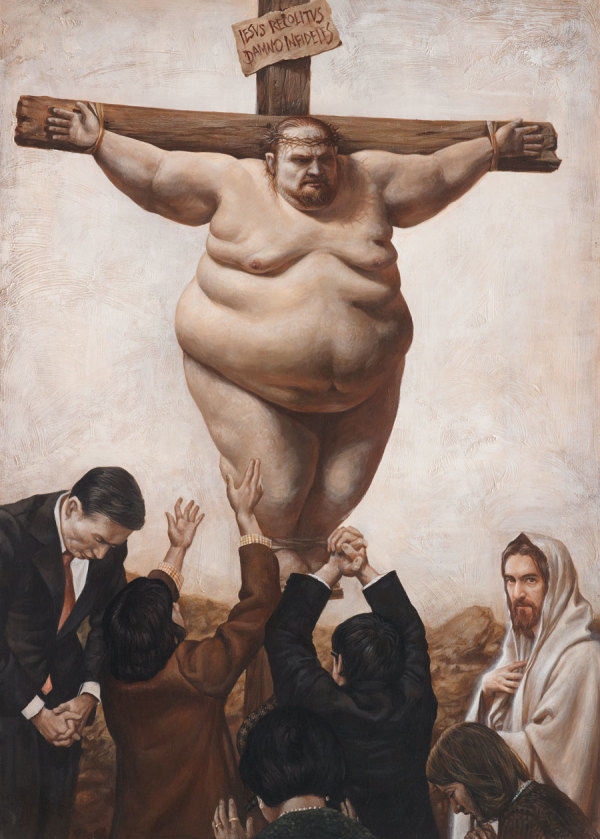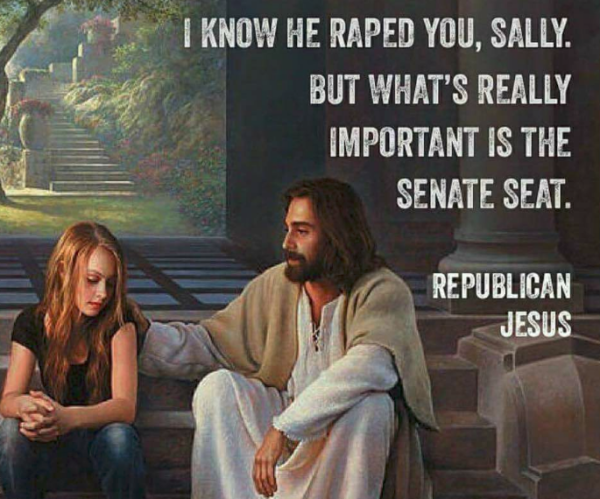EDITOR’S NOTE: **This was originally posted to Forbes on Sunday, Mar 11. Forbes took it down today. This is the explanation I received from the editor. Here is the original article in full:
CHRIS LADD: Many Christian movements take the title “evangelical,” including many African-American denominations. However, evangelicalism today has been coopted as a preferred description for Christians who were looking to shed an older, largely discredited title: Fundamentalist. A quick glance at a map showing concentrations of adherents and weekly church attendance reveals the evangelical movement’s center of gravity in the Old South. And among those evangelical churches, one denomination remains by far the leader in membership, theological pull, and political influence.
There is still today a Southern Baptist Church. More than a century and a half after the Civil War, and decades after the Methodists and Presbyterians reunited with their Yankee neighbors, America’s most powerful evangelical denomination remains defined, right down to the name over the door, by an 1845 split over slavery.
Southern denominations faced enormous social and political pressure from plantation owners. Public expressions of dissent on the subject of slavery in the South were not merely outlawed, they were a death sentence. Baptist ministers who rejected slavery, like South Carolina’s William Henry Brisbane, were forced to flee to the North. Otherwise, they would end up like Methodist minister Anthony Bewley, who was lynched in Texas in 1860, his bones left exposed at a local store to be played with by children. Whiteness offered protection from many of the South’s cruelties, but that protection stopped at the subject of race. No one who dared speak truth to power on the subject of slavery, or later Jim Crow, could expect protection.
Generation after generation, Southern pastors adapted their theology to thrive under a terrorist state. Principled critics were exiled or murdered, leaving voices of dissent few and scattered. Southern Christianity evolved in strange directions under ever-increasing isolation. Preachers learned to tailor their message to protect themselves. If all you knew about Christianity came from a close reading of the New Testament, you’d expect that Christians would be hostile to wealth, emphatic in protection of justice, sympathetic to the point of personal pain toward the sick, persecuted and the migrant, and almost socialist in their economic practices. None of these consistent Christian themes served the interests of slave owners, so pastors could either abandon them, obscure them, or flee.
What developed in the South was a theology carefully tailored to meet the needs of a slave state. Biblical emphasis on social justice was rendered miraculously invisible. A book constructed around the central metaphor of slaves finding their freedom was reinterpreted. Messages which might have questioned the inherent superiority of the white race, constrained the authority of property owners, or inspired some interest in the poor or less fortunate could not be taught from a pulpit. Any Christian suggestion of social justice was carefully and safely relegated to “the sweet by and by” where all would be made right at no cost to white worshippers. In the forge of slavery and Jim Crow, a Christian message of courage, love, compassion, and service to others was burned away.
Stripped of its compassion and integrity, little remained of the Christian message. What survived was a perverse emphasis on sexual purity as the sole expression of righteousness, along with a creepy obsession with the unquestionable sexual authority of white men. In a culture where race defined one’s claim to basic humanity, women took on a special religious interest. Christianity’s historic emphasis on sexual purity as a form of ascetic self-denial was transformed into an obsession with women and sex. For Southerners, righteousness had little meaning beyond sex, and sexual mores had far less importance for men than for women. Guarding women’s sexual purity meant guarding the purity of the white race. There was no higher moral demand. MORE


